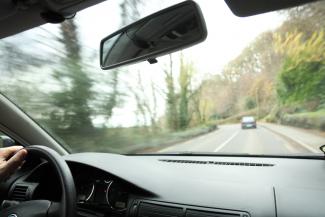
Look at these examples to see how used to, get used to and be used to are used.
I used to want to be a lawyer but then I realised how hard they work!
How's Boston? Are you used to the cold weather yet?
No matter how many times I fly, I'll never get used to take-off and landing!
Try this exercise to test your grammar.
Read the explanation to learn more.
Grammar explanation
Used to + infinitive and be/get used to + -ing look similar but they have very different uses.
used to
We use used to + infinitive to talk about a past situation that is no longer true. It tells us that there was a repeated action or state in the past which has now changed.
She used to be a long-distance runner when she was younger.
I didn't use to sleep very well, but then I started doing yoga and it really helps.
Did you use to come here as a child?
be used to and get used to
Be used to means 'be familiar with' or 'be accustomed to'.
She's used to the city now and doesn't get lost any more.
He wasn't used to walking so much and his legs hurt after the hike.
I'm a teacher so I'm used to speaking in public.
We use get used to to talk about the process of becoming familiar with something.
I'm finding this new job hard but I'm sure I'll get used to it soon.
It took my mother years to get used to living in London after moving from Pakistan.
I'm getting used to the noise now. I found it really stressful when I first moved in.
Be used to and get used to are followed by a noun, pronoun or the -ing form of a verb, and can be used about the past, present or future.
Do this exercise to test your grammar again.




hello I have a question
In what cases i have to use -ing form of a verb?
Hello beto97,
There are many different situations in which we use the '-ing' form. A good place to start is on our '-ing' forms grammar page.
All the best,
Kirk
The LearnEnglish Team
I'm getting used to the working culture of my current company. It was fearsome before three years.
Hi i had a question "i am getting used to [sleeping] there" is sleeping a gerund or a verb(1st form+ing)
Hello yahys,
In this case, 'sleeping' is a gerund. This is because 'to' is a preposition, and prepositions are always followed by noun phrases. A gerund is the nominal ('noun') form of a verb.
The same is true in a phrase like 'He's looking forward to seeing you'.
All the best,
Kirk
The LearnEnglish Team
I have a question about this:
Dear Sir, In reference to above can't we use-I am used to playing football in the morning. Please correct me.
Hello bridge23d,
It's important to distinguish between two different uses of the words used to that are easily confused. These are explained above, but briefly again they are:
1. used to + verb (to speak about a past habitual action that is no longer true)
2. to be used to + noun phrase OR + verb in the -ing form (to speak about something you are accustomed to)
So if you say 'I'm used to playing football in the morning' (2), it's not really talking about a habit. It means it's something normal for you. I can see how that could imply that it's talking about a habitual action (because we are probably accustomed to most of the things we do habitually), but that's a meaning that we add and is not what the grammar expresses.
Many students of mine say 'I'm used to studying English every day' (an action I'm accustomed to) when what they really mean is 'Normally I study English every day' (a habitual action).
Remember that used to + verb always speaks about something that is not true right now. 'I used to study English every day' speaks about the past and it means I don't study English every day in the present.
Hope this helps.
All the best,
Kirk
The LearnEnglish Team
Thanks Sir, I got it.
Hi,
Can you please explain what is wrong with this:
I have always been admiring women scientists.
Thanks
Hi gerisdao,
Verbs expressing emotions and feelings are generally not used with continuous aspect, so the correct form would be 'I have always admired...'.
Similar verbs include like, love, hate, desire, approve etc.
Peter
The LearnEnglish Team